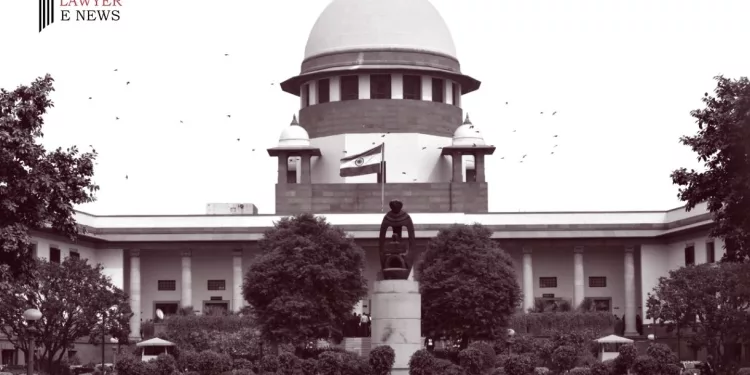Jurisdiction of Sessions Court Retained Until Special Court Designated Under NIA Act: Supreme Court Reverses High Court’s Quashing of UAPA Proceedings

In a significant judgment, the Supreme Court of India, comprising Justices B.R. Gavai and Sandeep Mehta, reversed a Calcutta High Court decision which had quashed proceedings under the Unlawful Activities (Prevention) Act (UAPA) against the respondent, Jayeeta Das, ruling that until a Special Court is designated under the National Investigation Agency (NIA) Act by the State Government, the Sessions Court retains jurisdiction over such cases.
Brief on Legal Points: The core issue deliberated upon was the jurisdictional authority to try cases under the UAPA in the absence of a Special Court designated under the NIA Act. The appeal by the State of West Bengal contested the High Court’s ruling which held that the Sessions Court lacked jurisdiction in UAPA matters, exclusively reserved for a Special Court.
Facts and Issues: Based on the recovery of materials linked to CPI(Maoist), an FIR was registered on January 1, 2022, against Jayeeta Das under various sections of the IPC and later under the UAPA. Following this, a petition was filed under Section 482 CrPC by the respondent seeking to quash the proceedings, leading to the High Court’s decision favoring the respondent by asserting the need for a designated Special Court.
Detailed Court Assessment:
Jurisdiction of Sessions Court vs. Special Court: The Supreme Court clarified, “until a Special Court is designated by the State Government under Section 22(1) of NIA Act, the Sessions Court having jurisdiction over the division in which the offence was committed retains jurisdiction,” thereby allowing the continuation of proceedings at the Sessions Court level.
Extension of Remand and Charge Sheet Filing: The Apex Court observed that the irregularities in remand extension do not affect the validity of continued proceedings against the accused under the UAPA, stating, “the accused not applying for default bail post 90 days before the charge sheet filing leads to the conclusion that irregularities do not vitiate the proceedings.”
Legality of Orders Extending Detention: It was held that the City Sessions Court had appropriate jurisdiction to extend detention beyond 90 days in the absence of a designated Special Court. The High Court’s decision was found to be erroneous on this point.
Decision: The Supreme Court allowed the appeal, reinstating the jurisdiction of the Sessions Court to try the UAPA charges against Jayeeta Das and set aside the High Court judgment quashing the proceedings.
Date of Decision: April 18, 2024
State of West Bengal vs. Jayeeta Das





